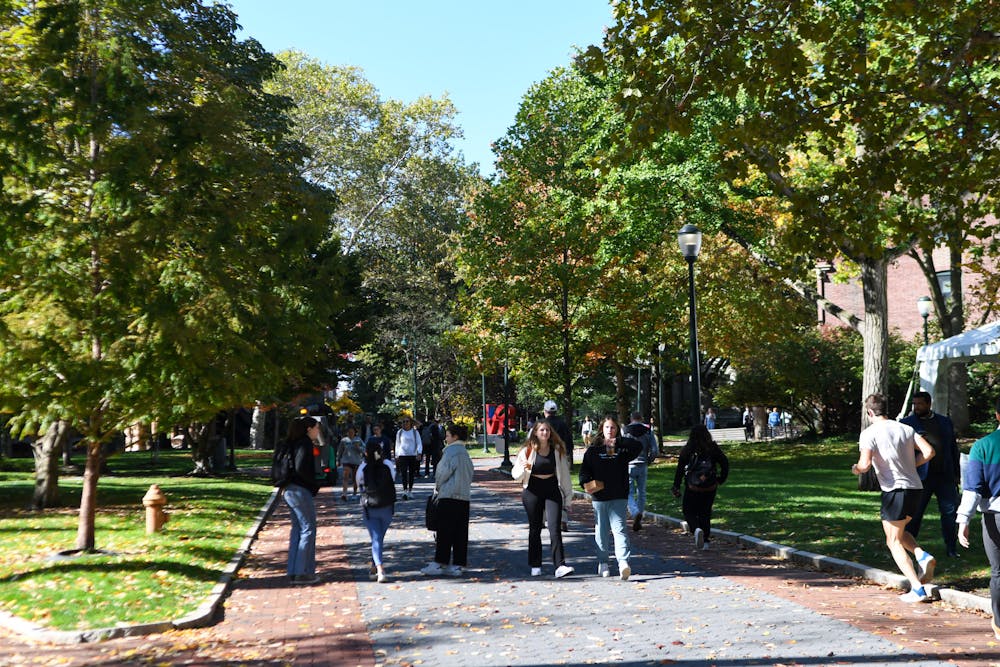
How many times have you found yourself in a never-ending cycle of back-and-forth messages, trying to pin down a date for a long overdue catch up with a friend? Every get together begins to feel as if it requires intricate planning and strips away the simplicity of social connection. This routine becomes stifling, lacking spontaneity and authenticity; you’re constrained to coordinating with the same faces in the same places.
This is what I like to call scheduling fatigue.
As a result of this phenomenon, gatherings among friends are beginning to resemble scheduled business meetings, meticulously arranged via tools like When2Meet or synchronized Google Calendars.
While resorting to scheduling may seem like the only viable option to maintain a semblance of social connection, perhaps it's time to embrace the idea of venturing out solo: I’m challenging you to go on an unplanned side quest all by yourself to a third place.
Allow me to explain. Picture the first place as your home and the second as your place of education or work. Now, the third place emerges as a public sphere where individuals congregate, not out of any obligation like in the previously mentioned locations, but, for lack of a more precise term, to simply vibe. It could be the cozy corner of a cafe, a communal park, or even the neighborhood barbershop — anywhere that’ll allow you to interact with people outside your usual circles.
Yet, at many universities like Penn, the concept of a third place seems all but lost as our lives remain restricted to school grounds, causing even our first and second places to converge into one. While spots on campus — like Stommons, Pret, or the cultural centers in ARCH — can offer some respite, they often come with the latent pressure of being on the clock. Conversations here revolve around assignments, internships, and the intricacies of Penn culture. The chances of an unexpected encounter dwindle given that most people in attendance will be other Penn students. As we’re cocooned in the Penn bubble, it comes as no surprise that many students spend their four years in Philadelphia without ever fully exploring it.
Yet, this insulation comes at a cost that extends far beyond what we realize.
It severs our connection not only from the outside world but also from ourselves. That is, within such limits, our individuality dwindles, reducing us to mere roles influenced by our peers. By excluding ourselves from a wider social sphere, we inhibit opportunities to engage with diverse perspectives, trap ourselves in a cycle of familiarity, and risk leading monotonous lives that pave the way to burnout.
However, in our lives, both intimacy and affiliation with broader communities are essential. While intimacy often stems from our immediate circles, affiliation thrives in third places where spontaneous interactions occur. These spaces facilitate easy contact with new individuals on a regular basis, without the need for prior scheduling. As they consistently offer an opportunity for interaction with others, they end up cultivating the most reliable form of socialization.
So, if you are keen on exploring new horizons and getting involved in the Philadelphia community, I suggest checking out the many informative articles dedicated to bursting the Penn bubble.
Nevertheless, I want to avoid confining third places to physical locations. They’re more of a mindset, a willingness to embrace spontaneity wherever it may arise. They don't have to be far from campus or require spending money. Instead, third places can be any informal spots you visit — whether it's your student lounge, the library, or a community center.
We often find ourselves caught up in the routines of daily life, clinging to familiar patterns of scheduling and social interaction. However, amidst the chaos, it's crucial to pause and reflect on the quality of our connections.
Perhaps it's time to break free from the shackles of scheduling fatigue and explore what third places offer.
LALA MUSTAFA is a College sophomore studying international relations and history from Baku, Azerbaijan. Her email address is lmustafa@sas.upenn.edu.
The Daily Pennsylvanian is an independent, student-run newspaper. Please consider making a donation to support the coverage that shapes the University. Your generosity ensures a future of strong journalism at Penn.
Donate







